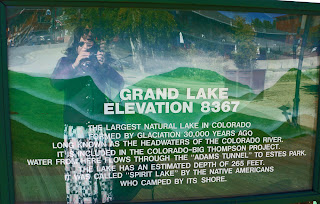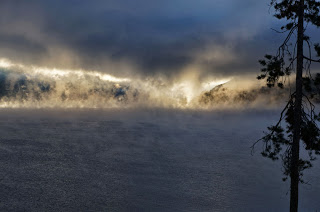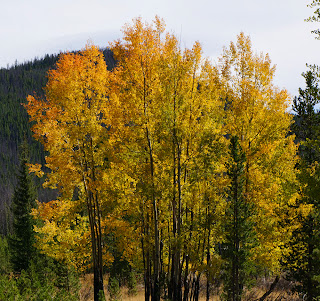I came to Grand Lake at the height of the aspen gold rush. I watched them survive a winter storm, then
weaken in shades of brown as the time to leave has nearly come. They will soon drop those lovely yellow leaves,
and I will leave tomorrow for a long drive home.
 |
| The same aspens after the storm |
 |
| Aspens as they were when I arrived |
Here are three pictures, taken from the same place, near my
cabin, showing the aspens as they were when I arrived, then after the storm,
and now in their fading.
 |
| The fading aspens as we all must leave |
Thank you all for following these blog posts and for all your comments.
To be Used Later
Sharon Hawley
The violent surface of a mountain stream
scampering over rocks
water slant and screaming through the trees
eternal moan and wail
streaming down the cold granite
becoming winter
while cliffs rise black above
When I am old and full of sleep
and nodding by the fire
let this scene revive:
only trees of sterner stuff
survive here























































